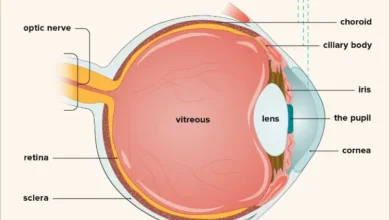Optometrists, Ophthalmologists, and Opticians: What’s the Difference?
An optometrist performs regular eye examinations. An ophthalmologist deals with surgical procedures to treat eye ailments while an optician fits eyeglasses and other vision aids.
If you’ve ever needed to find an eye doctor, you probably know that there are multiple kinds of eye specialists. Ophthalmologists, optometrists, and opticians are three different types of eye care professionals.
This article explains the education requirements, average salary, scope of practice, and services of optometrists, ophthalmologists, and opticians. We’ll also talk about finding the right eye care provider for you.

What is an optometrist?
An optometrist is your primary healthcare provider for routine eye healthcare.
Education level
The optometry postgraduate program is a 4-year doctorate program, depending on the school and the curriculum. Here are the courses in the program:
- Simple and complicated strategies for ocular examination
- Case Studies and Client Case History
- More natural science and pharmacology courses
Coursework for optometry programs will also include clinical training as a resident, typically during the last 1 to 2 years of a program but potentially starting sooner. Optometry school varies by the amount and duration of coursework and clinical training.
An optometry residency is an additional optional year to gain additional experience in a specific area, such as:
- Ocular disease
- Specialty contact lenses
- Pediatrics
- Binocular vision
Salary range
According to the Bureau of Labor Statistics (BLS), optometrists had a median annual income of $131,860 in 2023.
Services they provide
You go to an optometrist for your annual eye check-up, to update a prescription for glasses or contact lenses, or to obtain medication and treatment for particular eye issues.
In contrast to an ophthalmologist, an optometrist does not specialize in surgery and cannot address more severe eye issues.
The services provided by optometrists:
- Regular or periodic eye examinations, emphasizing eye health education
- Diagnosis of eye conditions
- Prescriptions for:
-Eyeglasses
-Contact lenses
-Other vision aids
- Eye conditions and that are both medical treatments and may be minor surgical procedures
- Postsurgical eye care
Ophthalmic medications (including controlled substances for eye conditions) Depending on state laws, some optometrists are allowed to perform minor surgical procedures, including foreign body removal and laser eye surgery.

What is an ophthalmologist?
Ophthalmologist: A doctor whose specialty touches on surgical procedures involving the eye.
Education level
Ophthalmologists must complete an entire medical program, a 1-year internship, and a 3-year ophthalmology residency program. The residency program builds on the following:
- Internal and external eye disease diagnosis & treatment
- Fellowship (sub-specialty) training in the diseases of the eye
- Surgical training in ophthalmology for all areas of vision problems
Ophthalmology residents also perform supervised surgery because their training includes hands-on care of patients.
Ophthalmologists, like optometrists, can do an optional fellowship that usually lasts another 1 to 2 years.
Ophthalmologists subspecialize during this fellowship in areas such as:
- Oculoplastics
- Glaucoma
- Pediatrics
- Neuro-ophthalmology
- The cornea or retina
Salary range
Average annual salaries for ophthalmologists in 2023: $312,120.
Services they provide
An ophthalmologist can deliver the same level of care as an optometrist, which encompasses routine eye examinations and prescription renewals. But an ophthalmologist—a medical doctor specializing in eye care—can also perform eye surgery for various diseases and conditions, including cataracts, glaucoma, and strabismus.
Services provided by an ophthalmologist include:
- Basic optometry services
- Surgical and medical treatment of eye diseases
- Rehabilitation services following eye surgery
Depending on the state, optometrists and ophthalmologists perform eye surgery. OptometristsOptometrists are limited by the procedures they can perform, but any surgical procedures they are trained for are permissible for ophthalmologists.

What is an optician?
An optician is a customer service agent in a vision care retail environment or within an optometrist’s practice.
Education level
Training to become an optician is not as formal as the training for optometrists or ophthalmologists. A degree is not necessarily required . Becoming an optician involves a level of certification, which can be pursued through a one- to two-year program, such as an associate’s program in ophthalmic dispensing.
A practicing optician may also obtain certification through an in-house apprenticeship under an ophthalmologist or optometrist.
Salary range
Optician Median Salary 2023: $47,560 (Dollars Per Year)
Services they provide
Opticians work in your optometrist’s office or local vision care center and provide customer service. They can also be visited for routine care, such as retrofitting and dispensing glasses and contact lenses.
They can also answer general questions about eye care without examining, diagnosing, or treating eye diseases.
Services offered by opticians:
- The use of contact lenses and glasses prescribed by optometrists and ophthalmologists
- And adjust eyeglass frames by measuring, fitting,
- Assisting customers in selecting eyeglass frames, contacts, and other vision aids
- Working as part of an optometry office and doing general office work
Opticians can’t perform eye exams or diagnose or treat eye conditions, as the fields of optometry and ophthalmology do.
How to select the professional you require:
- How can you determine which eye specialist to visit? Your choice of an optometrist, ophthalmologist, or optician will depend on the specific service you need:
- Go to an optometrist for a routine eye check, such as a yearly eye examination or fulfillment of an eyeglass, contact lens, or eyeglass medication prescription.
- Consult an ophthalmologist for serious eye issues like glaucoma or cataracts.
- To have an eyeglass or contact lens prescription filled or adjusted, see an optician at an optometrist’s office or vision care center near you.
The takeaway
The education, specialty, and scope of practice for optometrists, ophthalmologists, and opticians vary.
Optometrists are eye care providers who examine and treat eye conditions. Ophthalmologists are physicians who specialize in the surgical treatment of eye disorders. Opticians are customer service experts who work in vision care centers and optometry clinics.
The ideal eye care specialist for you will depend on the specific services you need. You can also use the American Optometric Association’s Find a Doctor of Optometry tool to find an eye doctor near you or the American Academy of Ophthalmology’s Find an Ophthalmologist tool.


